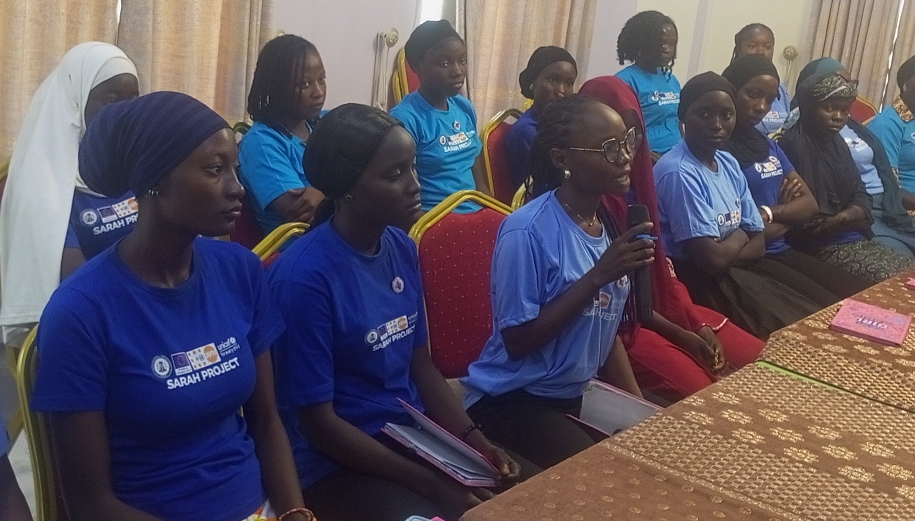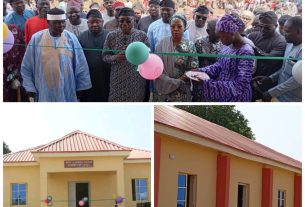Weary of using cotton wool, tissue paper or piece of used clothe as sanitary pads, affected adolescent girls in Adamawa State have called out for interventions that could avail them of sanitary pads and other hygenic alternatives.
Many young women around the state, struggling with limited financial means, find it difficult to obtain the regular sanitary pads sold in pharmacies and patent medicine shops when their menstruation falls due, and have to resort to cotton wool, tissue paper or pieces of used clothes to soak up the flow.
Adolescent girls from all parts of Adamawa State who gathered in the capital, Yola, in part of activities of the ongoing World Adolescent Week, urged increased investment on empowerment initiatives and adolescent-friendly health services that could make their needs more readily or freely available.
During the two-day interactive session organized under the European Union-funded Strengthening Access to Reproductive and Adolescent Health (SARAH) project, jointly implemented by the EU, UNICEF, and the Adamawa State Government, Egla Dauda, the Adamawa State Adolescent Team Lead, spoke for creation of more safe spaces for adolescent girls in health facilities where girls could speak freely about their health and personal challenges without fear of discrimination or stigmatization.
“Safe spaces in every local government area will make it easier for adolescent girls to access care and counseling confidently,” Egla said.
She also called on the state government to empower young girls economically to reduce their vulnerability to exploitation and deprivation.
Identifying menstrual hygiene as one of the major challenges facing adolescent girls in rural communities, Egla appealed for support in the local production of reusable sanitary pads, asserting, “If girls are empowered to make reusable pads, life will be much easier for them.”
In his presentation to the girls, a health officer with UNICEF, Oluseyi Olosunde explained that the SARAH project aims to strengthen policies and systems that improve access to reproductive health and rights for adolescents, women, and children.
Oluseyi later told newsmen that Adamawa is one of three states in Nigeria benefiting from the four-year EU-funded initiative, adding that to address menstrual hygiene challenges, UNICEF and its partners plan to enable adolescent girls in every local government area to produce reusable menstrual pads using locally available materials.
“We are targeting girls in rural areas who are often the poorest of the poor. By training and equipping them, we not only improve hygiene but also create small-scale economic opportunities,” he said.
Similarly, a staff of the Adamawa State Primary Healthcare Development Agency, ASPHCDA, Steven Sunday Maina, highlighted efforts to make health facilities more adolescent-friendly, saying, “We are creating safe spaces in our health facilities where adolescents can feel welcome and respected.
By Onimisi Alao




